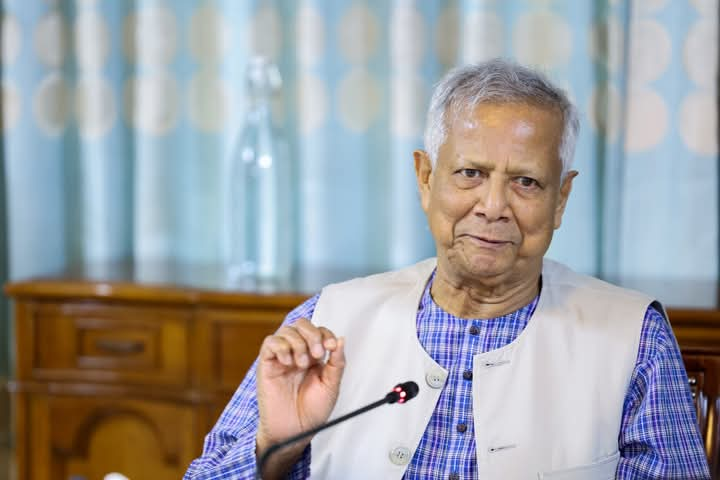Chief Adviser Muhammad Yunus has issued a set of five directives—including offloading government stakes in multinational companies and taking necessary steps to bring them to the capital market—with the objective of revitalising and modernising the embattled market and transforming it into a major source of long-term financing for businesses.
“Reform the capital market within three months with the help of foreign experts to prevent manipulation by vested interest groups,” Yunus said during a high-level meeting held at his official residence Jamuna with him in the chair on Sunday.
The directives come amid a prolonged slump in investor confidence, sluggish trading activity, and concerns over irregularities in the country’s capital market.
In recent months, the Dhaka Stock Exchange has seen a steady decline in turnover and index levels, prompting calls for urgent structural reforms. Allegations of manipulation, lack of transparency, and a limited pipeline of new listings have further weakened market momentum.
Yunus instructed the Bangladesh Securities and Exchange Commission (BSEC) to explore incentive mechanisms to attract large domestic private companies—some with annual turnovers of $2–3 billion—to the capital market, according to a statement by the Chief Adviser’s Press Wing.
Explaining the directives, Chief Adviser’s Press Secretary Shafiqul Alam cited the government’s shareholding in Unilever as an example and stated that measures would be taken to offload those shares in the market.
He also mentioned major business conglomerates such as City Group and Meghna Group, noting that the authorities have been instructed to take the necessary steps to bring such firms into the capital market.
As part of another directive, Chief Adviser Yunus ordered the formation of a team of foreign experts to assist in reforming the country’s stock market. According to Shafiqul, these professionals—free from local ties or vested interests—will be responsible for submitting actionable reform recommendations within three months.
Shafiqul pointed out that many vested interests currently operate within the stock market, often obstructing reform initiatives. To counter such resistance, the engagement of foreign experts is seen as a strategic move to ensure impartial and effective reform.
These experts will propose ways to modernise the market, protect investors and stakeholders, and enhance transparency and confidence in the financial system. Their recommendations are expected to be submitted within a three-month timeframe.
Shafiqul also acknowledged that several entities involved in the capital market face serious allegations of corruption and irregularities. The Chief Adviser has therefore directed that immediate and strict action be taken against all individuals implicated in such activities.
Additionally, Yunus expressed concern over the widespread practice of large syndicated loans among major companies. He emphasised the importance of shifting towards market-based capital mobilisation through bonds and equity, in order to reduce dependence on bank financing.
Officials have been instructed to actively encourage large businesses to raise funds through the capital market, rather than relying heavily on bank loans.
The meeting was attended by Finance Adviser Salehuddin Ahmed, Special Assistant to the Chief Adviser Anisuzzaman Chowdhury, BSEC Chairman Khondoker Rashed Maqsood, and Financial Institutions Division Secretary Nazma Mobarek.
At the beginning of the meeting, Maqsood presented a brief overview of reform measures and progress made in the capital market over the past nine months.


